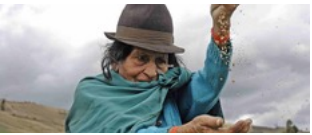History of Fairtrade
In 1988 was lunch the first Fairtrade by Max Havelaar. In 1997 Fairtrade International was established in Bonn (Germany) to harmonize worldwide standards and certifcation. In 2013 that was a change in Fairtrade International’s constitution gives farmers and workers an equal say in running the global Fairtrade movement. Fairtrade International introduce the Fairtrade Sourcing Programs for cocoa, sugar and cotton – the first major change to Fairtrade labelling in its history. With the Charter of Fair Trade Principles since 2009 there is a single reference point for international Fair Trade. The Charter aims the creation of a future co-operation between Fair Trade Organisations in order to develop its potential to guarantee more equity in international trade. Adopted by the WFTO and Fairtrade International, it explains the main Fair Trade principles. Te Fairtrade standards are made to support the sustainable development and give more power to the small producers and agricultural workers in the poorest countries in the world. There are different types of Standards. One of them give to smallholders the opportunity to work together in cooperatives or other types of organizations.
Another standard ensure for workers decent wages, the right to join trade unions and the respect of health and safety standards from the employers. Fairtrade Standards also foresee a Fairtrade Minimum Price, that is the minimum that must be given to the producers to cover their costs. In addition producers can get an additional sum to invest, the Fairtrade Premium. Another objective of this standards is to ensure financing for producers who require it. There are also some materials that must not be used in the production of Fairtrade products.

Fairtrade Minimum Prices
The minimum price is determined by the Fairtrade Standards and Pricing Unit. It applies to most Fairtrade certifed products. It is an established listing in concert with manufacturers to enable them to receive an income that covers production costs, but also enable investments for business development. If the market price is higher than the Fairtrade minimum price, the Fairtrade Standards require that producers should be paid to the market share.
Fairtrade Premium
In addition to the price paid for the product, there is an additional sum of money, called the Fairtrade Premium. Are the same manufacturers, in fact, who decide how to use the Fairtrade Premium. In the case of small producers' organizations, members can make decisions about the Fairtrade Premium by voting during their meetings. In the case of employees, the Fairtrade Standards require that a "Joint body" democratically elected, composed of employees and representatives, is responsible for the administration of the Fairtrade Premium.
The mission
The mission of Fairtrade is to help producers and consumers, promote fairer trading conditions to fight poverty, strengthen their position and take more control over their lives.
USEFUL LINKS:
http://wfto.com/fair-trade/10-principles-fair-trade
http://www.fairtrade.net/about-fairtrade/what-is-fairtrade.html
http://www.fairtrade.net/about-fairtrade/history-of-fairtrade.html
http://www.fairtrade.net/about-fairtrade/our-vision.html
Written by: Leonardo Pinzuti, Daniele Motti e Davide Palmato


Nessun commento:
Posta un commento